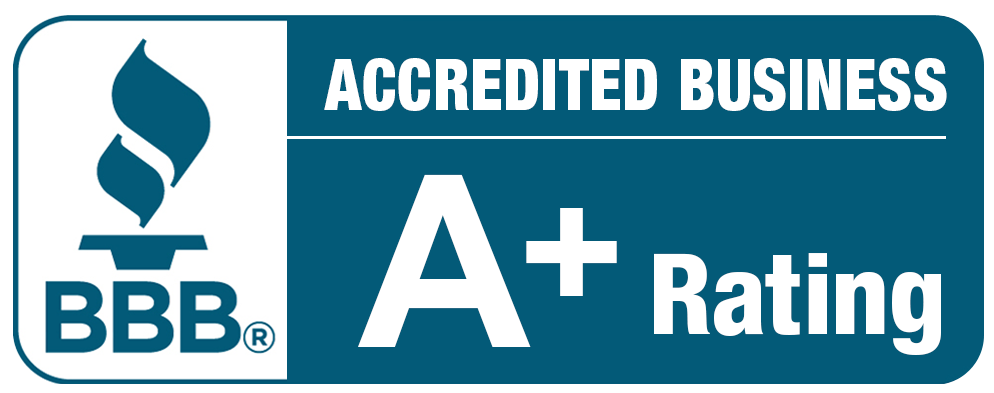For small and medium-sized businesses, debt is virtually always a reality that must be addressed. Ensuring your business’s debt is properly modified can significantly improve its operations – including freeing up cash flow.
Below we will take a look at the various types of business debt, review the basics of debt financing, and discuss how National Credit Partners can help your small or medium-sized business secure debt relief or modification solutions for the short and long-term.
Short term loans can be enticing in the fact that they provide businesses with almost instant access to financing. If approved, many short term loans can be accessed in as little as 24 hours. However, a maximum short term loan is typically around $500,000, and if your business obtains one you will be responsible for paying it off quickly – often within one to three years time. Interest rates for short term loans vary, but a business in good standing (not in financial hardship or distress) can typically secure a rate between 8% and 10%. Unexpected expenses, increasing personnel, replacing equipment, and company expansion are common reasons for taking out a short term loan.
A popular financing option for entrepreneurs, business term loans may offer a small or medium-sized business the ability to acquire working capital, expand company operations, hire additional personnel, or purchase company equipment. A business term loan amount can vary considerably on a case-by-case basis – typically starting at around $5,000 and maxing out around $2 million or even $3 million in some cases. A Business term loan repayment plan could be anywhere between one and five years.
Small Business Administration (SBA) loans are guaranteed by the government, but offered by banks and various other types of lenders. A repayment plan for an SBA loan can vary depending on whether you’re primary purpose for taking our said loan was either to acquire working capital, purchase company equipment, or purchase company property/real estate. This type of loan can be a solid option for businesses looking to either refinance existing debts or expand operations. That said, they are more difficult to qualify for than other loans given that they typically include some of the lowest repayment percentages available anywhere.
Business lines of credit offer companies access to the amount of funds up to your specifically set credit limit. These can offer more flexibility than term loans because businesses are only paying interest on the money being accessed (or drawn). Such loans are typically unsecured and do not require upfront collateral.
Essentially a lump sum of cash upfront that can be used accordingly by your business, a merchant cash advance offers access to fast and unsecured financing. That said, those upfront advantages of sort can also include significant disadvantages – such as repayment terms that can include up to 350% interest in some instances. If your business operates with consistently high credit card transactions, you may be able to handle the repayments for a merchant cash advance. However, many small and medium-sized businesses experience cash flow problems as a result of MCAs.
As revolving lines of credit, business credit cards are often essential staples for companies to manage specific expenses – such as travel, office utilities, office supplies, office equipment, etc. As a general rule, credit cards should only be used for expenses that can be paid off on a monthly basis without incurring the often substantial interest rates (commonly exceeding 25%). Monthly rewards programs, cash back, and other types of perks may be advantages available for business credit cards, which are commonly accessed without any upfront collateral required.
From restaurants to office spaces to warehouses, a commercial mortgage can cover virtually any type of business property need. For businesses with excellent credit history as well as overall performance history, commercial mortgages are typically accessible. The same is commonly true for businesses starting out that are looking to secure an office location. For businesses in distress, however, accessing a commercial mortgage can be next to impossible. Commercial mortgages are what’s known as an asset-based loan. This means that the amount as well as the repayment rate of your business’s commercial mortgage will almost certainly be based (perhaps exclusively) on two key factors: your credit score and total value of any property you’ll be using as collateral. Amounts of commercial mortgages can vary significantly on a case-by-case basis – often starting around $250,000 up to $5 million or more. Interest rates for commercial mortgages typically start out between 4% and 5% depending on your business’s credit score and collateral value. Such loans typically exist on 25-year or 30-year repayment plans.
When your business needs equipment, an equipment loan is an excellent option (and not simply as a result of the name). Amounts can vary, but one enticing aspect of equipment loans is that they can be secured in multi-million dollar amounts (commonly up to $5 million). Another benefit or advantage of equipment loans is the ability to access the capital quickly – potentially in as little as 24 hours. Interest rates for equipment loans are typically competitive – often starting around 7.5%. Equipment loans typically do not require a down payment or upfront collateral (aside from the equipment) to be secured. That said, credit scores above 650 are preferred. Furthermore, bringing in (or being able to demonstrate consistently) at least $50,000 in annual revenue is often preferred with equipment loans.
Does your small business have unpaid invoices (those frequently requiring repayment within 60 days)? You could be eligible for what’s known as invoice factoring. By selling your invoices to an invoice factoring company, you could secure access to quick cash. In turn, that factoring company would then be responsible for collecting the invoices when they are due.
Very similar to invoice factoring, invoice financing involves using your business’s invoices as collateral to secure a cash advance. This can be an excellent means of securing quick cash flow for your small or medium-sized business, but they can be costly in the end. Furthermore, your business is still ultimately responsible for collecting all of the invoice payments when due.
A common option for startups, personal loans can be used for business purposes in some cases. If your business has no operating history, you may need to resort to this particular type of financing option. The borrowing amounts for personal loans are often small, however, particularly when compared to the other options reviewed within this list (often only up to $50,000). If you end up defaulting on a personal loan – even though it’s used for your business – a downside can be that it ends up hurting your personal credit score. But if you, as the startup founder, are willing to take such a risk, this can be a viable option.
Capped at $50,000 or less, microloans are typically offered by non-profit organizations and mission-based lenders. Often available to startups and new businesses, microloans are commonly accessed by companies in disadvantaged communities or those seeking small financing sums.
Fill the form to request a free Business Debt Consultation Now!
By clicking “Continue” above, I understand and agree to the following terms and conditions:
Capped at $50,000 or less, microloans are typically offered by non-profit organizations and mission-based lenders. Often available to startups and new businesses, microloans are commonly accessed by companies in disadvantaged communities or those seeking small financing sums.
What is Debt Financing and How Does it Work?
Debt financing is commonly defined as the process of borrowing funds from a lender or creditor in an effort to secure business capital. As the borrower, you would be required to repay the sum in regular monthly installments (typically with interest). Such financing can be utilized by small and medium-sized businesses alike for a variety of purposes and at various stages of company growth and development.
In terms of how debt financing works, it involves funds being borrowed from a lender with a specific payback period. Said rates and terms vary on a case-by-case basis.
How Can I Secure Debt Relief or Modification Solutions for My Business?
If your business is distressed and requires immediate short and long-term debt relief or modification solutions, National Credit Partners is here to help get you back on track the right way.
At National Credit Partners, we help small businesses like yours identify debt relief and debt modification solutions as soon as possible. If you’re struggling to obtain traditional financing, we can identify customized options created specifically to your small business’s needs which allow for immediate cash flow, but also get your company on the path towards traditional financing approval in the near future.
Unlike most other debt relief companies, National Credit Partners offers two critical advantages that can help your business improve its financial condition for the long-term:
• We strive to ensure that all advances are shown as ‘paid in full’ rather than ‘settled for less’ – assuring your business remains in good standing with lenders and qualifies for future financing.
• We provide every client with both debt restructuring and legal representation
We’ve successfully helped small businesses facing significant financial challenges – including defaults, collections, and legal actions – achieve permanent debt relief solutions. In fact, many of our distressed business clients were able to qualify for traditional financing (like SBA or term loans) after graduating our program.
With our years of experience and proven results, the National Credit Partners team of dedicated professionals is here to help your business find a debt relief solution that is tailored to directly meet your needs, challenges, and future goals.
Call us today at (888) 766-3998 or fill out the contact form below to arrange for a free and no obligation consultation with one of our skilled team members. We’ll review your company’s specific circumstances thoroughly and discreetly and utilize our decades of experience and proven results to help you achieve your financial goals.
Don’t settle for an unproven debt relief professional that could potentially make your business’s situation worse through inexperience. Choose National Credit Partners, the company offering direct, strong, and proven relationships established with countless creditors. We’ve helped companies achieve the financial solutions they need to make fresh starts, and can do the same for your business by identifying the personalized debt relief option that is right for you.
Complete the form below and one of our team members will reach out to you immediately.
If you are one of the many thousands of companies struggling with high interest business loans, call us today for a free consultation. Just taking the first step in talking to an expert can start relieving stress. And once you talk to a debt help specialist, you will see that there is hope.

An A+ rating represents BBB's high degree of confidence that the business is operating in a trustworthy manner and will make a good faith effort to resolve any customer concerns filed with the BBB.

Monday-Friday: 8:00am – 5:00pm PST
Saturday-Sunday: Closed
Chat with an expert to learn more about our strategies to help you find debt relief.